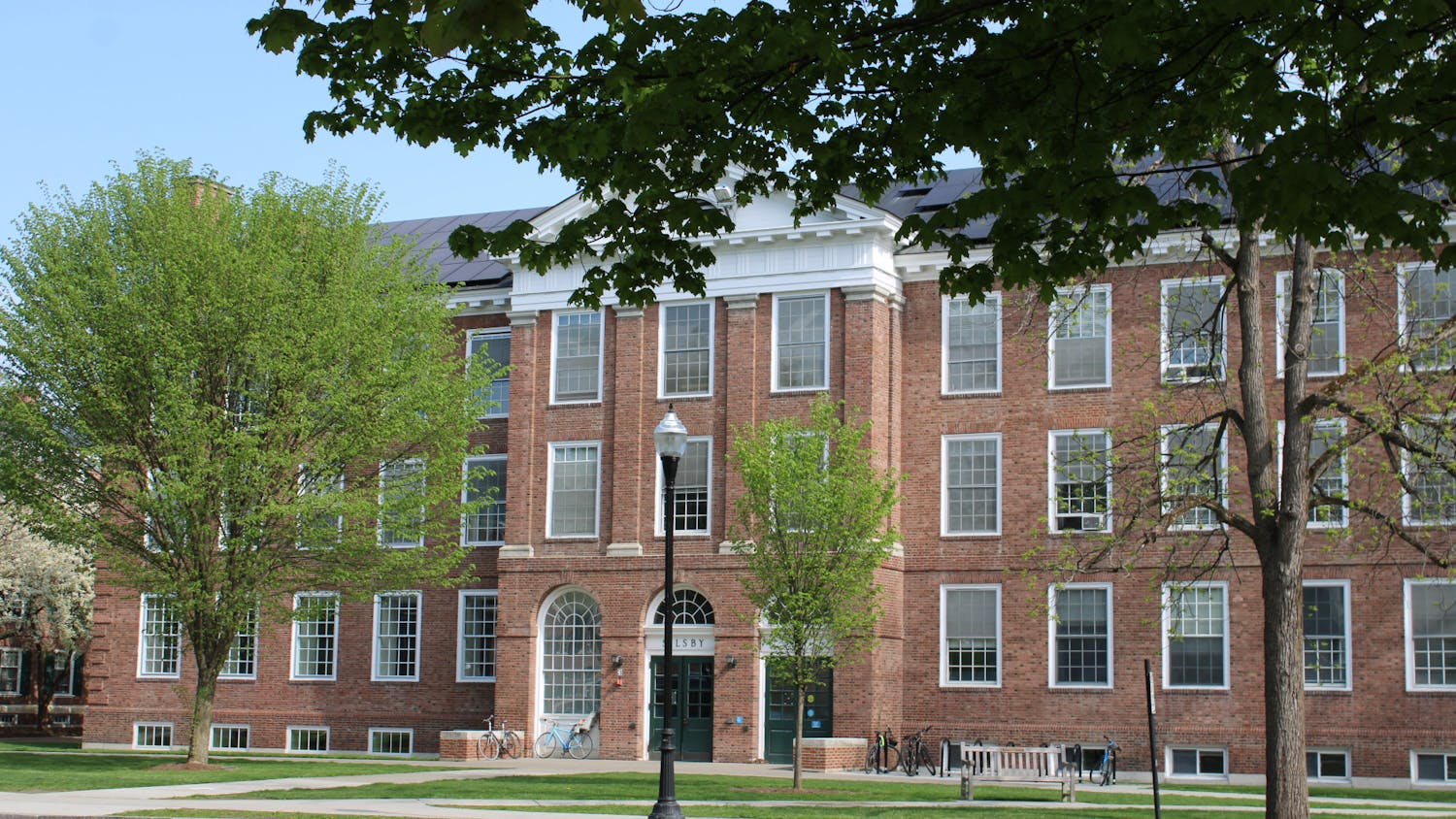About three weeks ago, the Inter-Fraternity Council and fraternity alumni advisors began drafting a proposal recommending changes to Greek life, addressing areas like high-risk drinking, sexual misconduct, freshman safety, house renovations, faculty advisors and inclusivity. Soon afterward, IFC met with the Panhellenic Council and Gender-Inclusive Greek Council to share a preliminary draft.
Throughout the revision process, fraternity alumni advisors offered advice to undergraduates writing the proposal, IFC president Wil Chockley ’15 said. When the final version of the document went live on a website titled “Moving Dartmouth Forward — The Greek Proposal” on Friday, it came alongside a letter from Dartmouth Greek Corporation presidents and advisors.
The website has garnered 1,400 signatures, said Gamma Delta Chi fraternity alumni corporation president John Turner ’04, who coordinated the website’s creation. Current students comprise about two-thirds of the signatories.
“What’s really impressive is the quality of the responses,” Turner said, adding that many unaffiliated students and alumni have submitted positive comments. “Some people have spent lots of time on well thought out messages.”
Turner said knowledge of the website has spread faster among students than within the alumni network.
Since the website went live, fraternity alumni groups have circulated the letter in an attempt to garner support for the undergraduates’ proposal, Phi Delta Alpha fraternity corporation president and house advisor George Faux ’84 said.
Fraternity alumni advisors were “pretty” involved with the first draft, Chockley said.
All five advisors interviewed emphasized that the proposal and its content originated from undergraduates.
“The alumni are just there to basically help us understand where they’re coming from, because obviously the alumni who are 10 or 20 years out of Dartmouth have a very different perspective on the campus social scene,” Chockley said.
Advisors offered insight on “what had been tried in the past and what worked,” Faux said, pointing to the Student Life Initiative under former College President James Wright, which aimed to reduce the Greek system’s influence. He also cited Minimum Standards, safety regulations that began in the mid-1980s mandating a quarterly inspections of Greek organizations, calling the policy “micromanaged and prescriptive.”
“These things tend to be quite cyclical,” Faux said. “Certainly people are taking this last challenge quite seriously.”
Sigma Phi Epsilon fraternity alumni and volunteer corporation president Herb Philpott ’85 said alumni have “good insight on proposals that would be helpful and proposals that would not ring well,” given their connections with administrators and faculty.
Philpott said he and other alumni wanted undergraduates to spearhead the proposals, a desire that College President Phil Hanlon has also expressed, he said.
All Greek advisors signed the letter, Philpott said, adding that alumni have largely been impressed by the undergraduate students’ initiatives.
Alpha Theta coed fraternity advisor Geoff Bronner ’91 was contacted by the alumni advisors who wrote the letter after it appeared on the website, said GIGC president and Alpha Theta member Noah Cramer ’16.
During the proposal writing process, Bronner made suggestions about language, especially in the section exempting gender-inclusive houses from the hard alcohol ban, Cramer said.
The alumni letter was drafted primarily by IFC house advisors, Cramer said.
Cramer said that rhetoric on the website and in the alumni letter is not fully consistent with how his council views the proposals, but that the GIGC ultimately values alumni support for policies that they helped craft.
Dimitri Gerakaris ’69, a house advisor for Beta Alpha Omega fraternity, said he thinks administrators’ willingness to hear student proposals will facilitate change.
To Gerakaris, the Greek policy proposal originated last spring, when Hanlon stated “enough is enough” at a summit on improving campus and reducing harm.
“I think a lot of students agreed with this and realized that a lot of really great, decent students were taking the fall for a small handful that were giving them a bad reputation,” he said.
John Daukas ’84, who has served on Chi Gamma Epsilon fraternity’s board of directors since the 1980s and created the ad hoc Committee to Support Greek Letter Organizations while president of the Alumni Council, said he hopes the website will channel support for the Greek system toward the steering committee.
“It’s not in competition with what [the Steering Committee is] trying to do, it’s in furtherance of what they’re trying to do,” he said.
Chockley said the document’s creators hope the proposal will match the “Moving Dartmouth Forward” presidential steering committee’s forthcoming recommendations. Although some policies could be implemented without administrative support, organizations will wait to institute others until they know the policies will not conflict with larger administrative policies like Social Events and Management Procedure.
Panhell president Rachel Funk ’15 could not be reached for comment by press time.
Maria Brenes and Madison Pauly contributed reporting.



